Abstract
Mothers of 56 children under 2 years old taking phenobarbitone and mothers of 55 children taking phenytoin recorded on questionnaires changes they had noted in the children's behaviour 3 and 9 weeks after starting the drug. Severe behavioural disturbance was noted by many, but the pattern and incidence was similar to that recorded by the mothers of 50 children starting a placebo, and we attribute it to the effect of a recent hospital admission. There was a small improvement in the behaviour of 20% of children who had been taking phenobarbitone for a year when they stopped it, but in this age group the disturbance caused by phenobarbitone did not appear to have been great.
Full text
PDF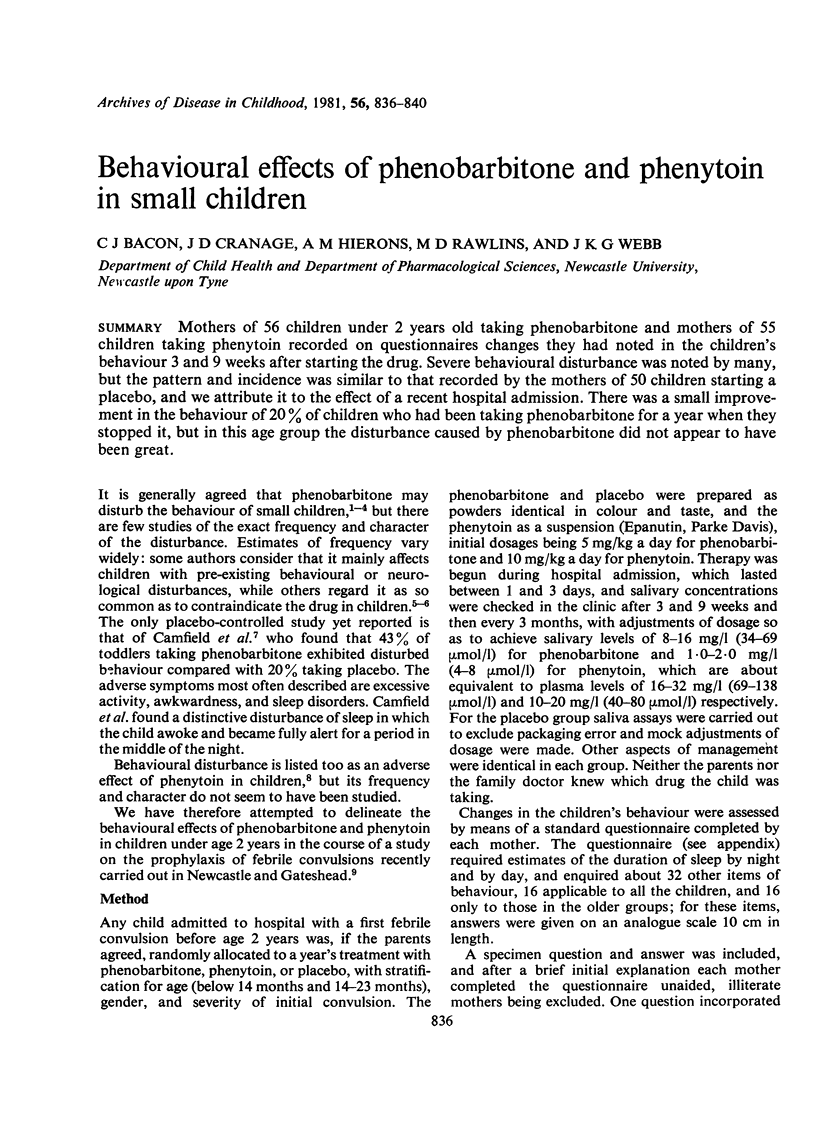
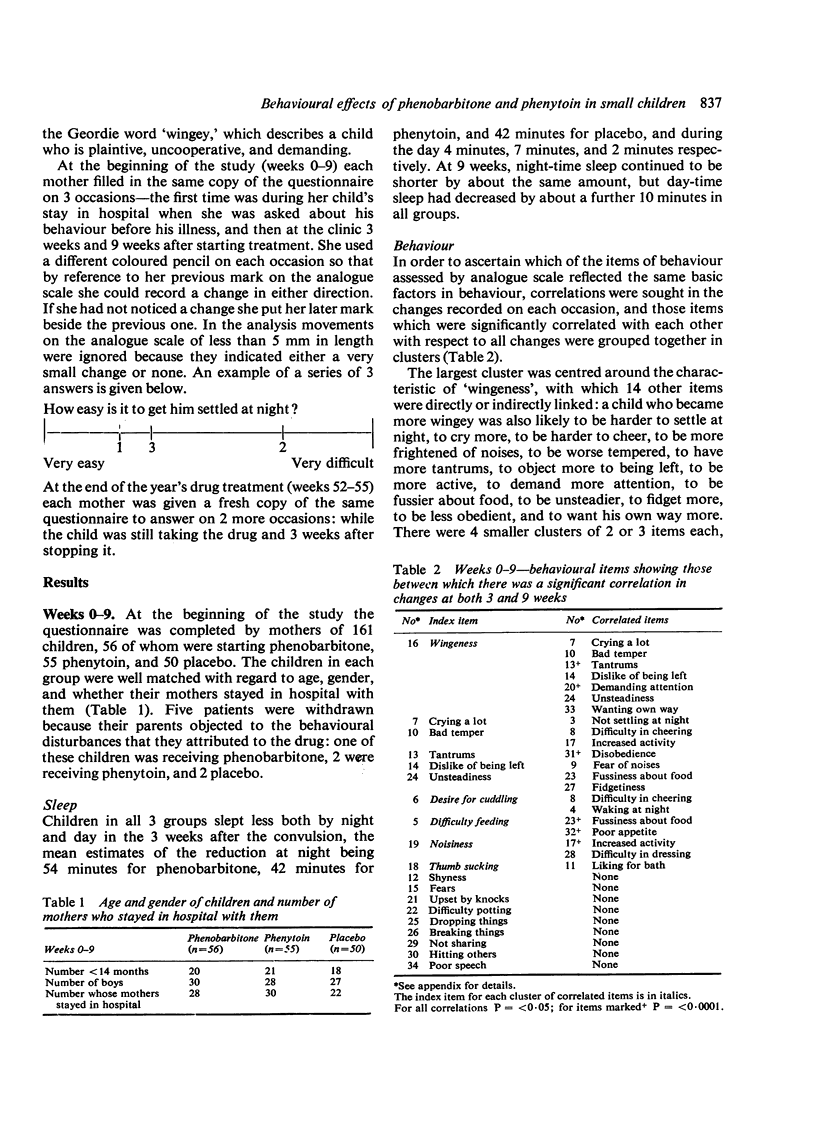
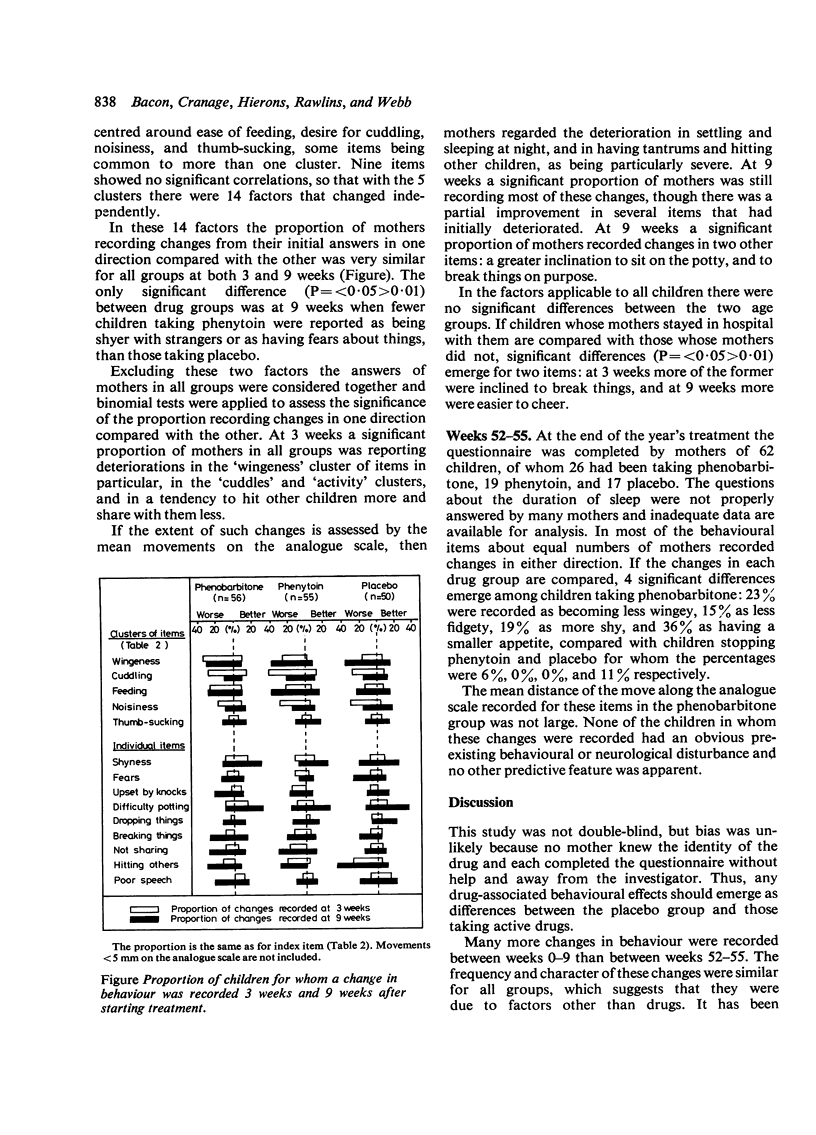
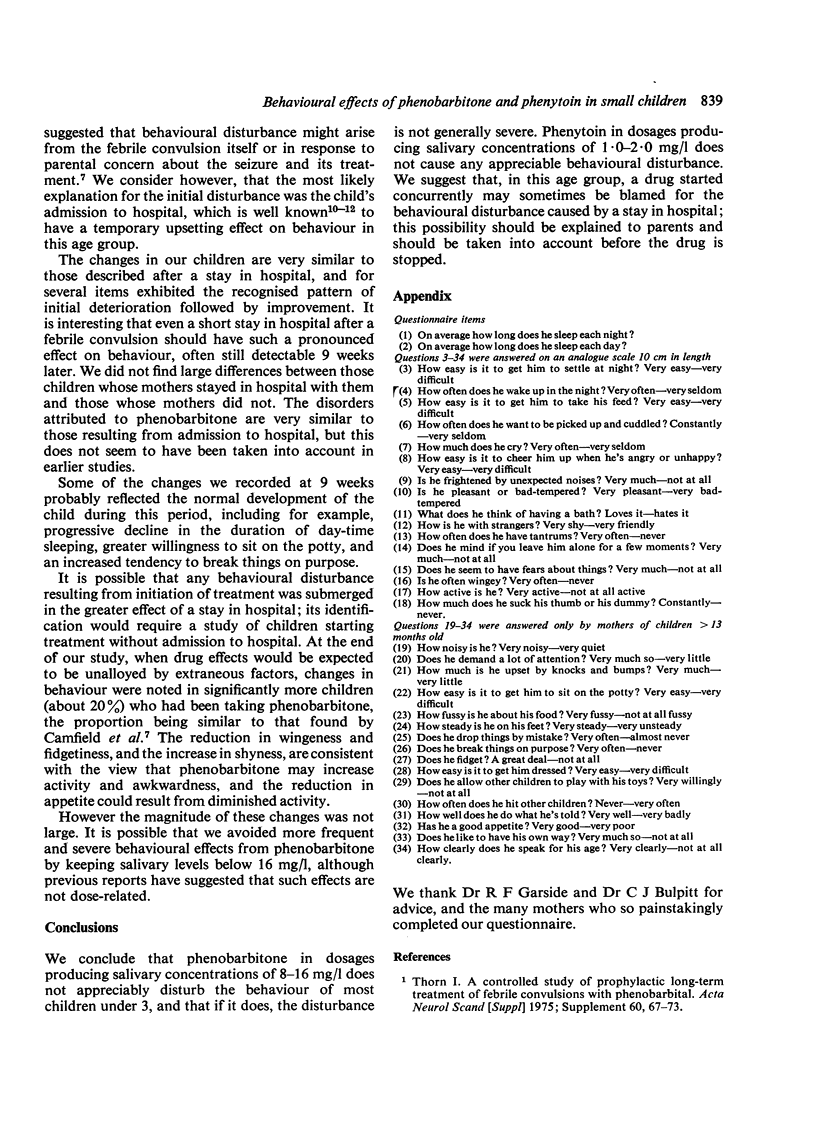
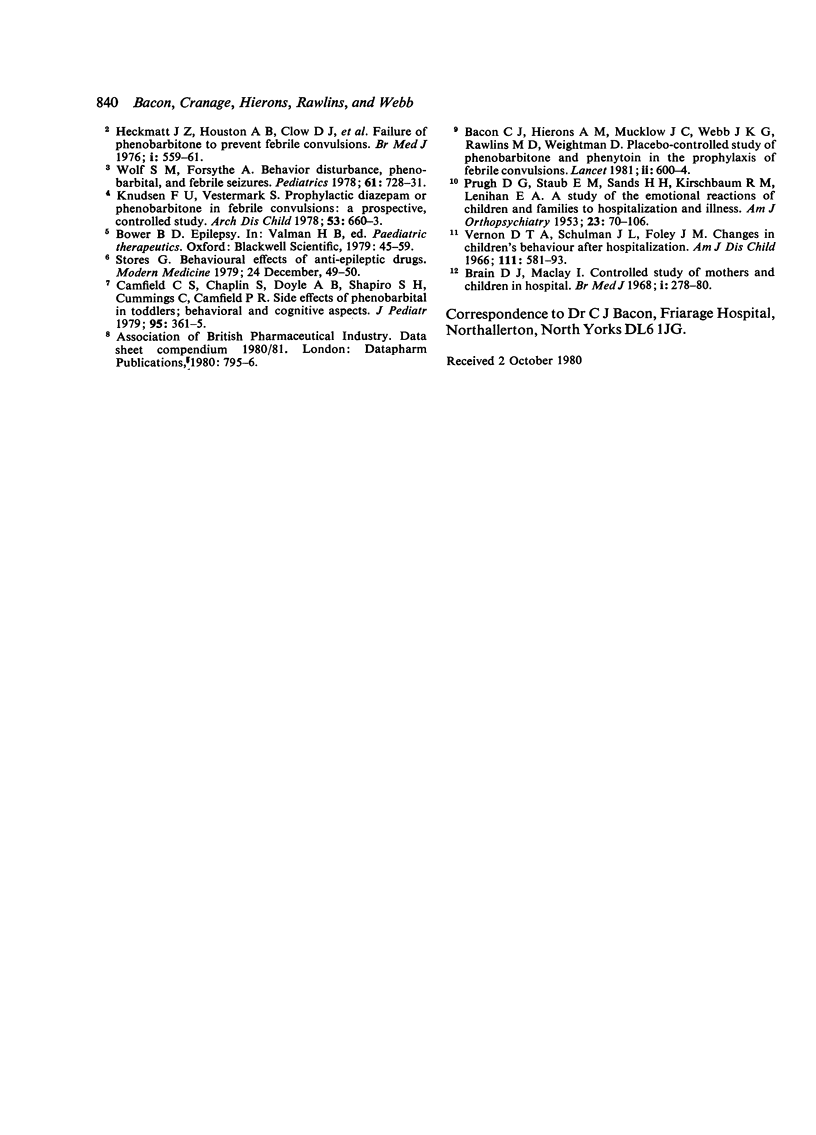
Selected References
These references are in PubMed. This may not be the complete list of references from this article.
- Bacon C. J., Hierons A. M., Mucklow J. C., Webb J. K., Rawlins M. D., Weightman D. Placebo-controlled study of phenobarbitone and phenytoin in the prophylaxis of febrile convulsions. Lancet. 1981 Sep 19;2(8247):600–604. doi: 10.1016/s0140-6736(81)92742-2. [DOI] [PubMed] [Google Scholar]
- Brain D. J., Maclay I. Controlled study of mothers and children in hospital. Br Med J. 1968 Feb 3;1(5587):278–280. doi: 10.1136/bmj.1.5587.278. [DOI] [PMC free article] [PubMed] [Google Scholar]
- Camfield C. S., Chaplin S., Doyle A. B., Shapiro S. H., Cummings C., Camfield P. R. Side effects of phenobarbital in toddlers; behavioral and cognitive aspects. J Pediatr. 1979 Sep;95(3):361–365. doi: 10.1016/s0022-3476(79)80507-7. [DOI] [PubMed] [Google Scholar]
- Heckmatt J. Z., Houston A. B., Clow D. J., Strephenson J. B., Dodd K. L., Lealman G. T., Logan R. W. Failure of phenobarbitone to prevent febrile convulsions. Br Med J. 1976 Mar 6;1(6009):559–561. doi: 10.1136/bmj.1.6009.559. [DOI] [PMC free article] [PubMed] [Google Scholar]
- Knudsen F. U., Vestermark S. Prophylactic diazepam or phenobarbitone in febrile convulsions: a prospective, controlled study. Arch Dis Child. 1978 Aug;53(8):660–663. doi: 10.1136/adc.53.8.660. [DOI] [PMC free article] [PubMed] [Google Scholar]
- PRUGH D. G., STAUB E. M., SANDS H. H., KIRSCHBAUM R. M., LENIHAN E. A. A study of the emotional reactions of children and families to hospitalization and illness. Am J Orthopsychiatry. 1953 Jan;23(1):70–106. doi: 10.1111/j.1939-0025.1953.tb00040.x. [DOI] [PubMed] [Google Scholar]
- Thorn I. A controlled study of profylactic long-term treatment of febrile convulsions with phenobarbital. Acta Neurol Scand Suppl. 1975;60:67–73. doi: 10.1111/j.1600-0404.1975.tb01392.x. [DOI] [PubMed] [Google Scholar]
- Vernon D. T., Schulman J. L., Foley J. M. Changes in children's behavior after hospitalization. Some dimensions of response and their correlates. Am J Dis Child. 1966 Jun;111(6):581–593. doi: 10.1001/archpedi.1966.02090090053003. [DOI] [PubMed] [Google Scholar]
- Wolf S. M., Forsythe A. Behavior disturbance, phenobarbital, and febrile seizures. Pediatrics. 1978 May;61(5):728–731. [PubMed] [Google Scholar]


